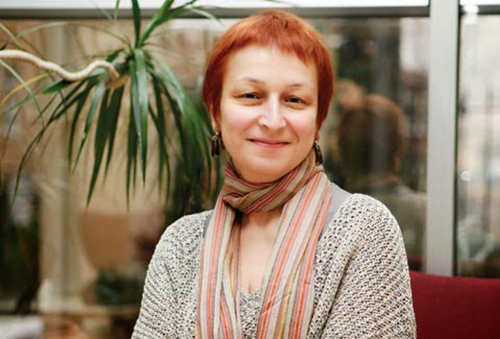01Mar 2017
Petition for the release from prison of Professor Istar Gozaydin
16:19 - By Administrator - Petitions

Professor Istar Gozaydin has been for many years a prominent member of the European Religion and Politics community. She is an intellectual, a human rights activist and an important scholar who has written significant and illuminating contributions on Turkish society and politics. Istar was fired from her job shortly after the abortive July 2016 coup attempt in Turkey and in December 2016 she was arrested on charges that have still not been clarified.
Over the last two months, her friends and colleagues have made numerous efforts for her release, but without success. The stage has now been reached of a mass petition which we hope will attract signatures from scholars from Europe and elsewhere in the world to demand her release from prison. We hope very much you are willing to sign the petition and if you could circulate it among your colleagues too for their signatures that would be much appreciated.
If you willing to sign the petition below, then please email Ahmet Erdi Öztürk at aerdiozturk@gmail.com who is collecting signatures.
Prime Minister Binali Yıldırım
Office of the Prime Minister
Başbakanlık
06573 Ankara
Turkey
Dear Prime Minister Yıldırım,
We, the undersigned, strongly urge the immediate release of İştar Gözaydın from her arrest at Aliağa Ceza İnfaz Kurumları Kampüsü. All evidence that is available to us suggests that she is, in fact, a prisoner of conscience of the Turkish state. We request that charges be dismissed directly. With the same breath, we ask that others among the fourteen members of Gediz University similarly incarcerated on December 20, 2016 and the hundreds of other academics, journalists and activists currently incarcerated under similar circumstances receive like consideration.
The charges against İştar Gözaydın are clearly specious, for her activities are consistent with her professional role as a scholar and leading expert regarding the institutional relations of religion and state. As the charges have been related to us – and we must use that phrase because the state has yet to make a record of charges public, now over seven weeks after they have been laid – Professor Gözaydın is apparently not charged with affiliation to the Gülenist cause, but she is accused of having benefited from Gülenist activity because she received modest compensation in line with services that she provided to one television production company, Samanyolu TV. The series of eight televised roundtable discussions in which she participated was one among many activities as a public scholar in which Professor Gözaydın has recently participated. In the year before her incarceration, Professor Gözaydın has published her professional analysis in perhaps thirty-five newspapers and she has worked with fifteen television production companies. Her role as a public scholar has led her to many such endeavours.
What Professor İştar Gözaydın has done, to the contrary of these charges, is exercise her professional role for the betterment of a free society. Professor Gözaydın is an eminent scholar whose role in the context of roundtable discussions, news interviews and political analysis places her alongside professional journalists as a critic. Without agents for the dissemination and analysis of policy such as Professor Gözaydın, a society cannot remain free and democratic.
In agreement with our colleagues at Scholars at Risk, we are greatly “concerned about the arbitrary suspension, arrest and detention of scholars as a part of sweeping actions taken by the State against higher education community members. While State authorities have a right to maintain order and respond to legitimate security concerns, such actions must comply with States' human rights obligations, including those relating to freedom of association, due process, and academic freedom, which are protected by international human rights instruments including the Universal Declaration of Human Rights and the International Covenant on Civil and Political Rights, to which Turkey is a party. In addition to the harm to the immediate victims, such incidents have a chilling effect on academic freedom and undermine democratic society generally.” The Committee to Protect Journalists finds that near to 1/3 of the world’s incarcerated journalists are to be found within the borders of Turkey. The Turkish state has muted and is in the process of destroying the organs of criticism and communication necessary for a free society. We ask that the government alter its path immediately.
With great attention and great concern,
[the undersigned]